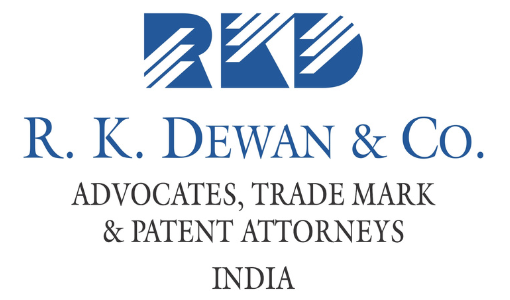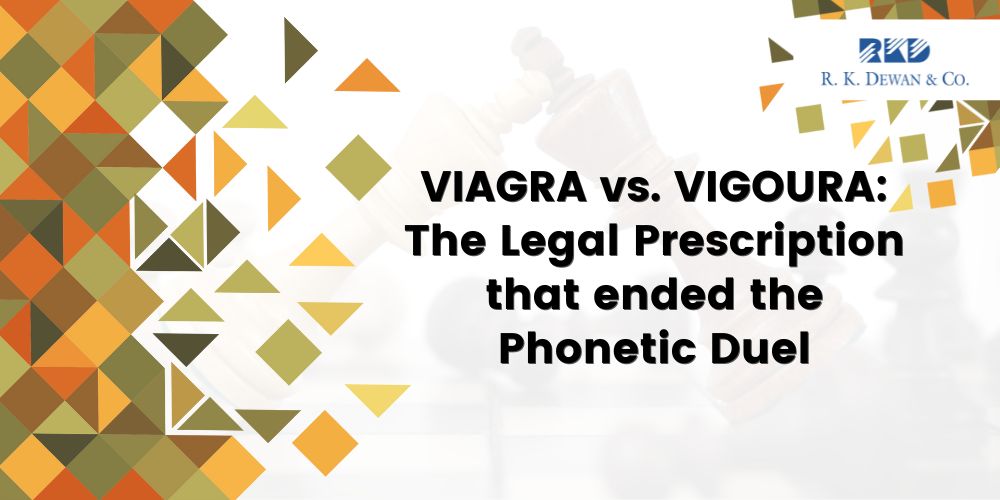In the case of Pfizer Products Inc. v. Renovision Exports (P) Ltd., Pfizer Products Inc., (Pfizer) initiated legal proceedings in the Hon’ble Delhi High Court to safeguard its well-recognized trademark ‘VIAGRA’ against, Renovision Exports (P) Ltd. (Renovision), who was conducting business under the mark deceptively and phonetically similar ‘VIGOURA’.
Pfizer is a leading global pharmaceutical company with a strong presence in several countries and adopted the brand name ‘VIAGRA’ for its drug containing Sildenafil Citrate in 1995. ‘VIAGRA’ is a registered trademark in over 147 countries, including India, where it has been in use since 1996.
Renovision started selling its products branded as ‘Nervine Tonic for Men’ and ‘Homeopathic Medicine invented in Germany’ under the infringing mark ‘VIGOURA’ in 1999. Subsequent investigations conducted by Pfizer revealed variants of ‘VIGOURA’ products, such as ‘VIGOURA 2000’, ‘VIGOURA 5000’, and ‘VIGOURA 1000’. Despite the differences in composition and intended use between ‘VIAGRA’ and ‘VIGOURA’, Pfizer alleged phonetic and structural similarity between the two marks and contended that the same could mislead consumers, potentially endangering public health as well as brand dilution.
Renovision countered stating that the products sold under the mark ‘VIGOURA’ were homeopathic medicines, intended to address vitality and regulating menstruation in women and was therefore, distinct from the Pfizer’s product.
The Delhi High Court evaluated several factors to determine trademark infringement and passing off in the instant matter:
- Trademark Ownership: Pfizer’s continuous and bona fide usage of the ‘VIAGRA’ mark, supported by international registrations and regulatory approvals, established its exclusive ownership. In contrast, Renovision’s engagement with the ‘VIGOURA’ mark began after ‘VIAGRA’ had gained global recognition. Renovision’s failure to conduct basic trademark search and due diligence undermined their claim of honest concurrent use.
- Similarity of Marks: The Court noted a high degree of phonetic and visual similarity between ‘VIAGRA’ and ‘VIGOURA’. Both marks shared common prefixes and suffixes and exhibited strong resemblances in letter structure and length. This similarity was particularly concerning in the pharmaceutical industry, where precise product identification is crucial for consumer safety.
- Likelihood of Confusion: The Court held that the similarity between the marks, coupled with the overlap in field of use and target consumers, created a strong potential for confusion. This was especially significant given the critical nature of the medicinal products involved, where confusion could pose serious risks to public health.
- Passing Off: ‘VIAGRA’s trans-border reputation was established through strategic media exposure. The Court concluded that the resemblance between the marks, the nature of goods, and the comparable medical conditions they addressed, established a case of passing off.
Based on the above analysis, the Court ruled in favour of Pfizer and permanently restrained Renovision and anyone acting on their behalf from using the mark ‘VIGOURA’ or any mark deceptively similar to Pfizer’s trademark ‘VIAGRA’. Additionally, Pfizer was awarded damages in tune of Rs. 3,00,000/- recoverable from the defendants.
This ruling provides several important lessons for both trademark registrants and potential infringers:
Monitor and Enforce Trademark Rights: The case highlights the importance of trademark owners remaining vigilant in protecting their marks. Pfizer’s success in this case largely stemmed from the fact that it was active in monitoring the market for potential infringements of its trademark “Viagra” and took legal action when it found one. Taking swift legal actions helps prevent further damage to the brand and strengthens the case for injunctive relief.
Maintain Evidence of Trademark Use: Pfizer was able to provide strong evidence of extensive and continuous use of its trademark “Viagra” across multiple jurisdictions. Maintaining detailed records of trademark use, including sales figures, advertising materials, and market presence, strengthens your case in trademark disputes.
The yardstick of similarity in terms of trademark registration related to pharmaceutical & medicinal preparations is different than that for other goods. Even a slightest degree of similarity is sufficient for the possibility of objections or refusal of an application for registration of a mark applied for. While ascertaining the availability of a trademark, it is no longer sufficient to rely solely on the records of the Trade Marks Registry. Instead, while adopting a trademark conducting comprehensive investigations in order to ascertain any prior and continuous use of a by third parties is advised, even if the proprietor of the registered mark is carrying out business outside India.Top of Form
A lesson for potential squatters or infringers is that infringing upon someone else’s intellectual property can have serious legal and financial consequences. It is essential to respect the intellectual property rights of others and to conduct themselves in accordance with the IP laws.


